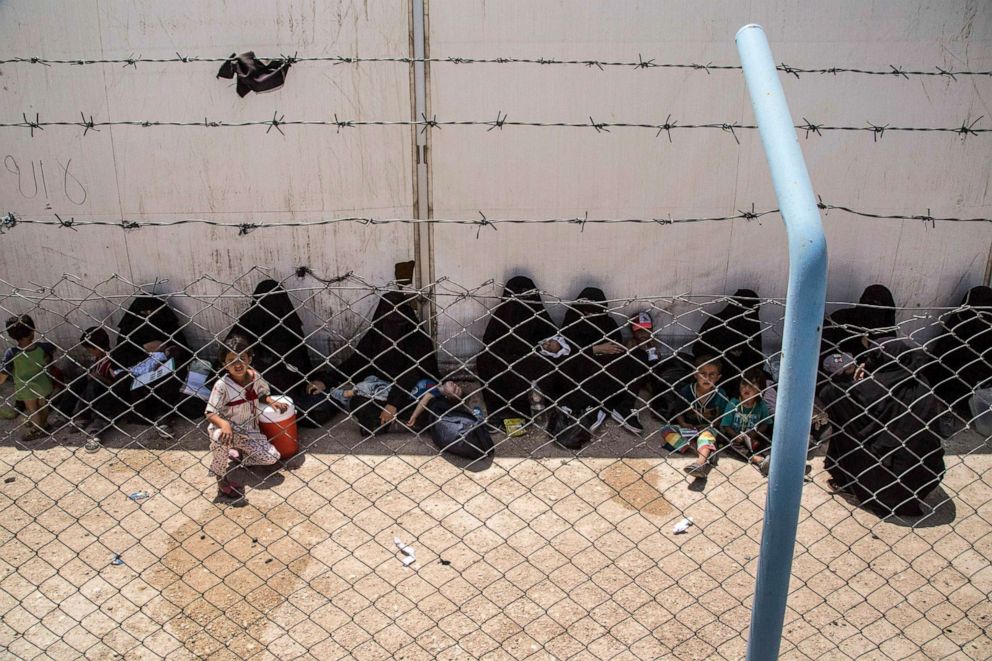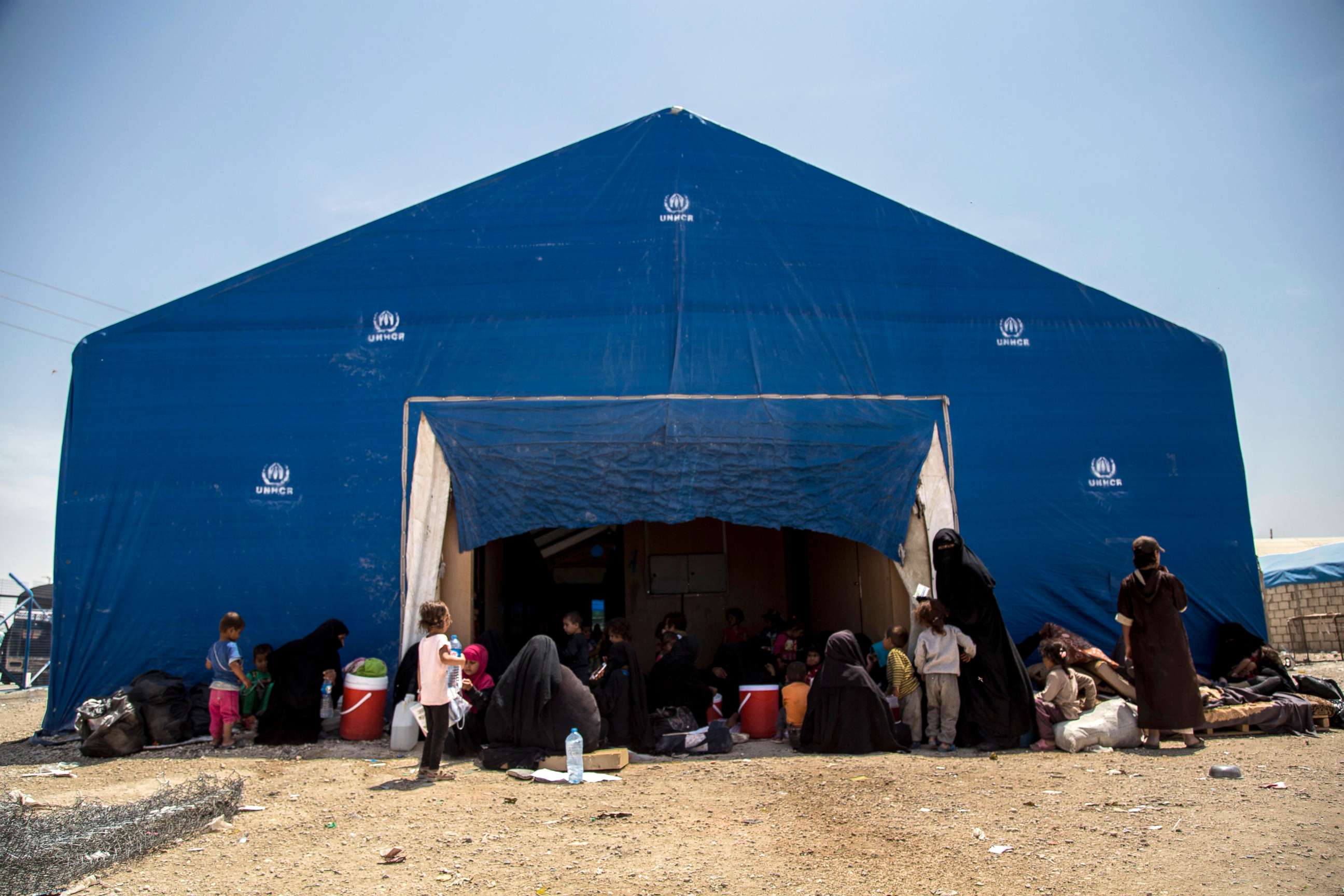American women, children who lived under ISIS transferred to US from Syria
The American women and children were captured with the Islamic State in Syria.
A group of American women and children captured with the Islamic State in Syria have been returned to the United States, the State Department and U.S.-backed Kurdish forces confirmed on Wednesday.
The U.S. has now repatriated more than a dozen of its citizens who were captured with ISIS, but the challenge of what to do with foreign fighters, their wives and children has vexed Western governments who fear a resurgence of the terror group and local officials who say they are struggling to detain so many ISIS adherents.
"We can confirm that several U.S. citizens, including young children, have been safely recovered from Syria, and we are assisting them with repatriation to the United States," a State Department official told ABC News, adding, "The safety and security of U.S. citizens is our highest priority."
The group consisted of two women and six children, a Kurdish official in northern Syria told the Associated Press. The official said they were returned at the request of the U.S. government and based on their own desire to return "without any pressure or coercion."
While the State Department declined to comment further, it appears these individuals will not be prosecuted. The statement did not refer to any ISIS affiliation or refer to the group as "terrorists."

That is a sharp contrast to the case of American-born Hoda Muthana, a so-called ISIS bride. She requested to return to the U.S. in February, but the State Department said that she was not a citizen because of her father's diplomatic status at the time of her birth.
"This is a woman who inflicted enormous risk on American soldiers, on American citizens. She's a terrorist. She's not coming back," Secretary of State Mike Pompeo told Fox Business Network in February.
Muthana filed a lawsuit to assert her citizenship and that case is still pending. Her father told ABC News on Wednesday that she remains in a detention camp with other women inside Syria.
The Trump administration has consistently called on all countries to accept the return of their foreign terrorist fighters and then prosecute or otherwise punish them. But the issue of what to do with women who joined ISIS and, in particular children brought to Iraq and Syria or born into the so-called caliphate, has been more difficult.

"Repatriating these foreign terrorist fighters to their countries of origin, ensuring that they are prosecuted and detained -- that's the best solution to preventing them from returning to the battlefield," said State Department deputy spokesperson Robert Palladino, when asked about ISIS brides' futures.
He did not distinguish between ISIS fighters and brides in his answers.
For those non-U.S. citizens who cannot be repatriated to their country of origin, Palladino said, transferring them to the prison facility at Guantanamo Bay is an option the Trump administration is considering.
Prior to Wednesday, the U.S. had repatriated eight citizens -- four adults and four children -- from Syria and Iraq. Three cases involved male ISIS fighters, who were taken into custody and prosecuted in the U.S., and another case involved a woman and her four children, the State Department official told ABC News.
There will likely be additional repatriations in the future, as the U.S. is aware of a small number of its citizens still located in camps in northeast Syria, the official said.
The identities of the individuals repatriated have been closely held. However, the New York Times interviewed Muthana, along with a dual U.S.-Canadian citizen named Kimberly Gwen Polman, at the al-Hawl camp in February. They said there was a Seattle family of four sisters with four children in a different camp. It's unknown if Polman or individuals from the Seattle family were part of the recent repatriations.
Americans represent only a small fraction of the tens of thousands of women and children who flooded out of ISIS-held towns as Syrian and Kurdish forces fought to reclaim the last bits of territory from the terrorist group. While men suspected of an ISIS affiliation were taken to detention facilities, most of the women and children are now living in large camps, unsure of their future. And while some women express remorse over their decisions to live in the ISIS caliphate, others have retained the extremist ideology, regrouping with other hardcore ISIS believers and terrorizing other women.
Despite the Trump administration's best efforts, several countries, including the United Kingdom, France and Germany, have largely refused to repatriate their citizens, including the women.
In February, the U.K. went as far as to strip British citizenship from a female teenager named Shamima Begum, who left to marry an ISIS fighter four years ago and now has a baby. British officials suggested to a small group of reporters this week that British individuals like Begum are better off in an American system of justice where they believe there is a higher chance of prosecution than under British law.
Late last month, Reuters reported that the U.S. had sent at least 30 suspected ISIS fighters from Syria to Iraq, where they would stand trial to include individuals from Belgium, France, Germany, Australia, Egypt and Morocco.
ABC News' Josh Margolin contributed to this report.




